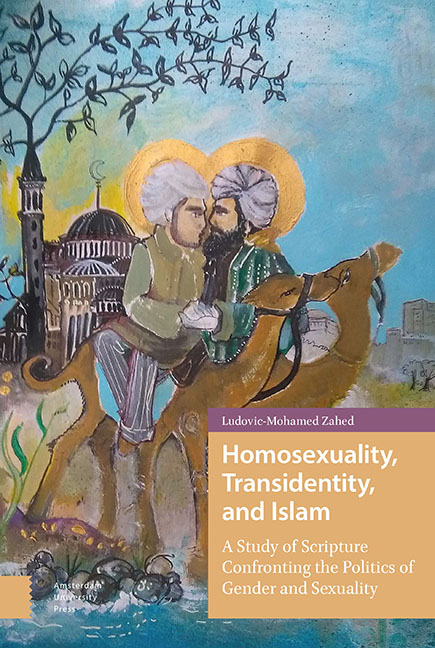 Homosexuality, Transidentity, and Islam
Homosexuality, Transidentity, and Islam Book contents
- Frontmatter
- Contents
- List of Figures
- Acknowledgments
- Foreword
- Introduction
- I The Qur’anic Ethics of “Nature”: Gender, Sexuality, and Diversity
- II Distressing Qur’anic Verses?
- III The Prophet: A Living Incarnation of Qur’anic Ethics
- IV Islamic Apocrypha Advocating the Stoning of “Sodomites”
- V Postcolonial Orientalisms
- VI “Abnormals”: From Cultural Diversity to Dogmatic Uniformity
- VII Towards a Structural Reevaluation of Cultural Values
- VIII Pan-Arabist Literary and Identity Censorship
- IX Orientalist Shi’ism and Literary Homoeroticism
- X Homonationalism and Performative Sexual Categorization
- XI A “Crisis” of Categories, Geopolitics or Civilization
- Conclusion
- Afterword
- Bibliography
- Index
V - Postcolonial Orientalisms
Published online by Cambridge University Press: 20 November 2020
- Frontmatter
- Contents
- List of Figures
- Acknowledgments
- Foreword
- Introduction
- I The Qur’anic Ethics of “Nature”: Gender, Sexuality, and Diversity
- II Distressing Qur’anic Verses?
- III The Prophet: A Living Incarnation of Qur’anic Ethics
- IV Islamic Apocrypha Advocating the Stoning of “Sodomites”
- V Postcolonial Orientalisms
- VI “Abnormals”: From Cultural Diversity to Dogmatic Uniformity
- VII Towards a Structural Reevaluation of Cultural Values
- VIII Pan-Arabist Literary and Identity Censorship
- IX Orientalist Shi’ism and Literary Homoeroticism
- X Homonationalism and Performative Sexual Categorization
- XI A “Crisis” of Categories, Geopolitics or Civilization
- Conclusion
- Afterword
- Bibliography
- Index
Summary
Abstract
This chapter introduces the social consequencesof, on the one hand, inclusive interpretationsand, on the other hand, exclusive (or, quitesimply, homophobic, transphobic, and misogynistic)interpretations of scripture, showing how queerMuslims in France, in Europe, and elsewhereposition themselves in relation to the theoreticaland theological debates in the Islamic world.
Keywords: queer identities,inclusive theology, postcolonialism
The first chapters of this book focused on scriptureand interpretations and, accordingly, I provided anoverview of the various interpretations made byearly Islamic scholars. These interpretations havehad an impact on the dynamics and politics of genderand sexuality in Islamic cultures throughout theages, right up to contemporary France and NorthAfrica. From the early years of Islam to thepresent, the performative categorization of identityhas undergone tremendous transformations, across theworld, in every culture, especially since theacceleration of globalization. I have witnessed howthe fascization of ideologies, on either side of theMediterranean Sea, has trapped queer Muslimminorities between Islamism and Islamophobia.
An in-depth analysis of these geopolitical dynamics andtheir consequences on queer Muslim identities is notthe aim of the present book. Nevertheless, I couldnot avoid a systemic overview of queer French Muslimperspectives on these issues, especially in thecontext of an Orientalism defined by Edward Said(1980) as “a series of crude, essentializedcaricatures of the Islamic world, presented in sucha way as to make that world vulnerable to militaryaggression.” This is also similar to how Jasbir Puar(2013) describes homonationalism and “how“acceptance” and “tolerance” for gay and lesbiansubjects have become a barometer by which the rightto and capacity for national sovereignty isevaluated.”
Therefore, in the chapters that follow, we turn to thesocial consequences of, on the one hand, inclusiveinterpretations and, on the other hand, exclusive(or, quite simply, homophobic, transphobic, andmisogynistic) interpretations of scripture. Indeed,how do queer Muslims in France, in Europe, andelsewhere position themselves in relation to thesetheoretical and theological debates?
- Type
- Chapter
- Information
- Homosexuality, Transidentity, and IslamA Study of Scripture Confronting the Politics of Gender and Sexuality, pp. 55 - 60Publisher: Amsterdam University PressPrint publication year: 2019


